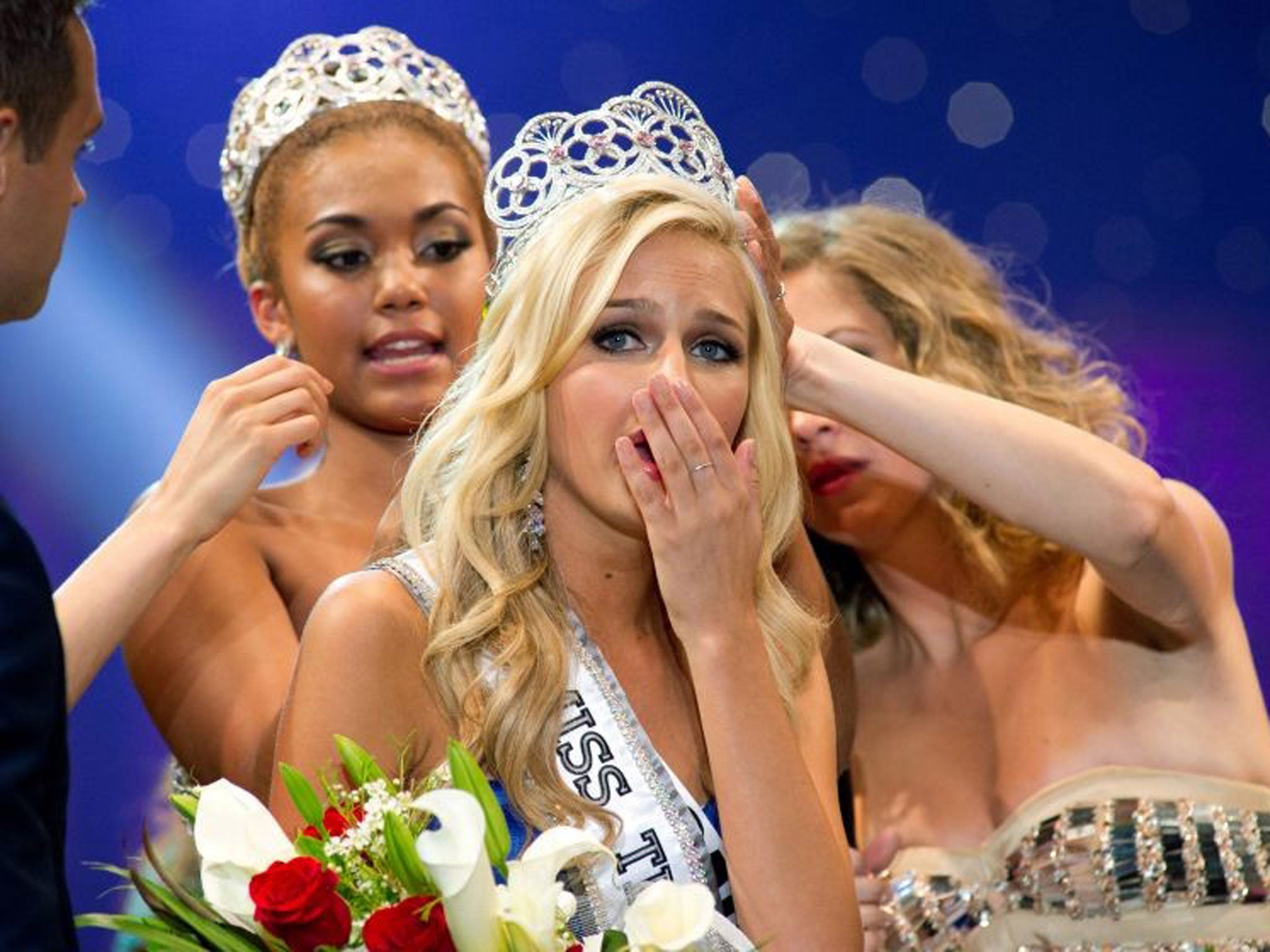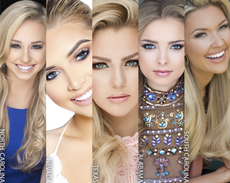The Independent's journalism is supported by our readers. When you purchase through links on our site, we may earn commission.
I interviewed one of the Miss Teen USA winners – and came away feeling conflicted
She looked the way you might imagine a beauty queen: tall and thin, unblemished and tanned, her blonde hair still gorgeous behind a hastily-tied ponytail. We sat outside a Starbucks together and discussed what it was like to be a pageant competitor. And here’s a shocker: not once did we discuss her looks

Beauty pageants get a bad rap. The false eyelashes, the twinkling crystal heels, the ball gowns woven from golden mermaid hair … it’s all a bunch of smoke and mirrors, right? This time-honoured practice – parading a group of women in front of a panel to be scrutinised and judged for their looks – is sexist. It’s outdated. It’s one of those patriarchal carnival shows we’ve yet to cleanse from society.
Maybe. Or maybe not.
This year’s Miss Teen USA competition recently revealed its five finalists, the winner of which was Miss Texas Karlie Hay. But Hay and her fellow finalists all bear a rather uncanny resemblance to each other. Big surprise: they’re all white, with blonde hair and blue eyes to boot.
It didn’t take long for social media to erupt with outrage, calling Miss Teen USA out for ignoring women of colour. And, of course, the competition deserves the criticism. If they can only give a crown to a fair-skinned, golden-haired gal from Texas, then Houston, we have a big problem.
But it isn’t just Miss Teen USA which has been criticised – it’s the entire beauty pageant system, and all the women who contribute to it as judges or coordinators or trainers or competitors. And the arguments on both ends have left me a little … well, conflicted.
Last year, I interviewed a young woman who had earned the titles of Miss Missouri USA, Miss Missouri Teen USA, and Miss Missouri Outstanding Teen. She looked the way you might imagine a beauty queen: tall and thin, unblemished and tanned, her blonde hair still gorgeous behind a hastily-tied ponytail. We sat outside a Starbucks together and discussed what it was like to be a pageant competitor. And here’s a shocker: not once did we discuss her looks.
Instead, we talked about her studies. Her plans to go to law school. Her contributions to a childhood cancer charity. Her knowledge of liberal and conservative policies. The way pageants made her feel confident, empowered, and ambitious. Pageantry had taught her communications skills, everything from mock interviewing to public speaking and debates. They’d taught her how to feel comfortable in her body.
Really, they’d taught her to be a feminist.
This is to be applauded. All girls – whether in the USA or Britain – should receive this sort of education. It’s exactly what so many insecure young women need: the confidence to advocate for themselves; to be bold, independent women.
The problem is that this confidence-building doesn’t happen in a vacuum. It happens in a world where women are constantly objectified – on television, on film, in tube stations, while walking home from work, in their relationships, in their offices, even eventually in their own mirrors. And it happens in a world where minorities (especially women of colour) are recognised less, are degraded more, and are characterised as less attractive than the beach babes of white suburban America.
Miss Teen USA has recently been commended for eliminating the swimsuit portion of their competition, a feature where teenagers stripped down to their bikinis and marched across the stage to be judged accordingly. Instead, the women will showcase their favourite workout wear – which is a big step in the right direction, seeing as it celebrates strength and athleticism.
The Miss America competition recently featured an openly gay Miss Missouri. And the title of Miss USA was awarded to black Army Reserve officer Deshauna Barber. Positive changes are happening within the world of pageantry; that can’t be ignored. Beauty competitions are changing for the better.
But they do have issues. As the latest Miss Teen USA finalists show us, pageants are still a white majority tradition. Barber, the black Miss USA winner, recently told USA Today, "Pageants are nerve-wracking in general. As African-American women, we do face discrimination at times, and it’s a natural fear I feel in every single field.”
But she later added: "I’m not the first African-American woman to win the competition, and I think it goes to show not only as a woman of colour but as a soldier, an IT analyst, a woman with her Masters degree, that the Miss Universe organisation is looking for diversity."
So where do we stand? Should beauty pageants be abolished from the face of the Earth? Clearly they're not all bad, and they're making leaps in the right direction. But how do we fix a tradition steeped in a history of sexism, one that actively encourages the objectification of women while also encouraging their confidence and ambition? How do you change a competition where attractiveness is so often whittled down to “white and blonde”?
I think it starts with letting women make their own choices. If they want to present their bodies to be judged before the world, then let them. That’s their choice. But don’t pressure them into entering pageantry at a young age (I think childhood pageants have a lot of problems of their own). And make the competition about more than their bodies.
Make it about their intelligence, about women’s contributions to the world. Make it about their knowledge of history, their thoughts on public policy, their answers to today’s headlines – just like the Miss Teen USA competition is doing more and more.
Make it about empowerment. Include more women with curvy hips and a little extra booty. Include more women with unique fashion styles, who are using the stage as a way to express themselves.
Make it about diversity. Actively seek out candidates of colour, women who were raised in African and Asian and Latino households, women with just as much to offer the world as white girls.
The beauty pageant isn’t an evil institution. But it has flaws, and until those flaws are recognised, it will keep on making the same mistakes – and receiving the same backlash – every single time.


Join our commenting forum
Join thought-provoking conversations, follow other Independent readers and see their replies